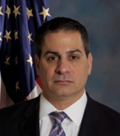
It’s been approximately two years since I left the FBI, where I spent more than 26 years. Prior to that, I was with the US Army in various capacities. During my time in both places, I had the great fortune of working with top-notch professionals and doing some very meaningful work globally.
Like many others, I faced the daunting task of leaving a job that I had done for so long to pursue something new. Even though everyone knows, plans, and expects this to happen at some point, it is still not easy. One of the most complex issues in my mind was how my experience would translate into the private sector. After a couple of years of experience outside of the FBI, it is very clear.
Investigations, Intelligence and Security
The mission of the FBI is to protect the American people and uphold the Constitution of the United States.1 To achieve this, FBI agents conduct thorough investigations, gather critical intelligence, and collect evidence. By analyzing this information, agents make strategic decisions on how to best neutralize the most critical threats to our nation’s safety and security. Effectively, we put the most dangerous bad guys away.
The mission of the private sector businesses is ultimately driven by the type of organization it is. Investigations, intelligence and security often play a role in protecting the security/safety/reputation of the organization. So, while private entities are not necessarily focused on putting bad guys away, experience gained as an FBI agent lends itself very well to fulfilling the private sector mission.
Extensive Network of Domestic and International Contacts
A former FBI agent, particularly one who has led an FBI/Local Police Task Force and served as an overseas legal attaché, brings a vast and well-maintained network of contacts across law enforcement, intelligence agencies, and government bodies, both nationally and internationally. This network is further enhanced through memberships in organizations like the FBI National Academy Associates, the International Association of Financial Crime Investigators, and the American Society for Industrial Security.
For private companies, these connections are invaluable in facilitating investigations, gathering critical intelligence, and securing cooperation across jurisdictions—essential tasks that are challenging without established, trusted relationships.
In-Depth Knowledge of the Global Landscape
FBI agents operate not only within the United States but also globally. This breadth of experience provides a deep understanding of the global landscape, which proves valuable when navigating complex cross-border issues.
Cultural Competence and Legal Navigation
FBI agents often bridge cultural gaps and navigate diverse legal systems. Whether conducting operations in New York, Latvia, Bosnia, or other regions, we integrate FBI investigative practices with local customs and legal frameworks, ensuring that operations are both effective and compliant. This ability to manage cultural and legal differences is critical for private organizations operating globally, where the success of investigations and intelligence efforts depends on understanding and respecting local nuances while achieving desired outcomes.
Influence and Collaboration
In today’s interconnected world, most investigations have both local and international dimensions. In international settings, where formal authority may be limited, an FBI agent’s ability to influence and persuade foreign partners to collaborate becomes a crucial asset.
This approach, grounded in building trust and aligning mutual interests, can be particularly valuable for private-sector organizations that need to secure cooperation in countries where legal processes can be complex or slow-moving. These skills are essential for investigations that require swift, cross-border collaboration to achieve timely and effective results.
Strategic Leadership from Military Experience
Many FBI agents, including myself, bring military experience to their law enforcement careers, which adds another layer of strategic leadership and crisis management capability. As a former Colonel in the U.S. Army, my military experience and training complement my FBI background by enhancing my ability to coordinate operations, manage high-pressure situations, and lead teams in challenging environments. This experience translates directly to the private sector, where effective leadership is critical in navigating intricate challenges and executing complex investigations and intelligence operations.
Recognizing the value of a knowledgeable strategic partner with a robust international network, deep global expertise, cultural competence, and the ability to influence collaboration across borders will assist private-sector organizations in their global business ventures. That same partner can also deliver comprehensive strategic solutions domestically.

A retired U.S. Army colonel and legal attaché with the FBI, John Bivona partners with public- and private-sector organizations to solve strategic security issues while delivering tactical results.












